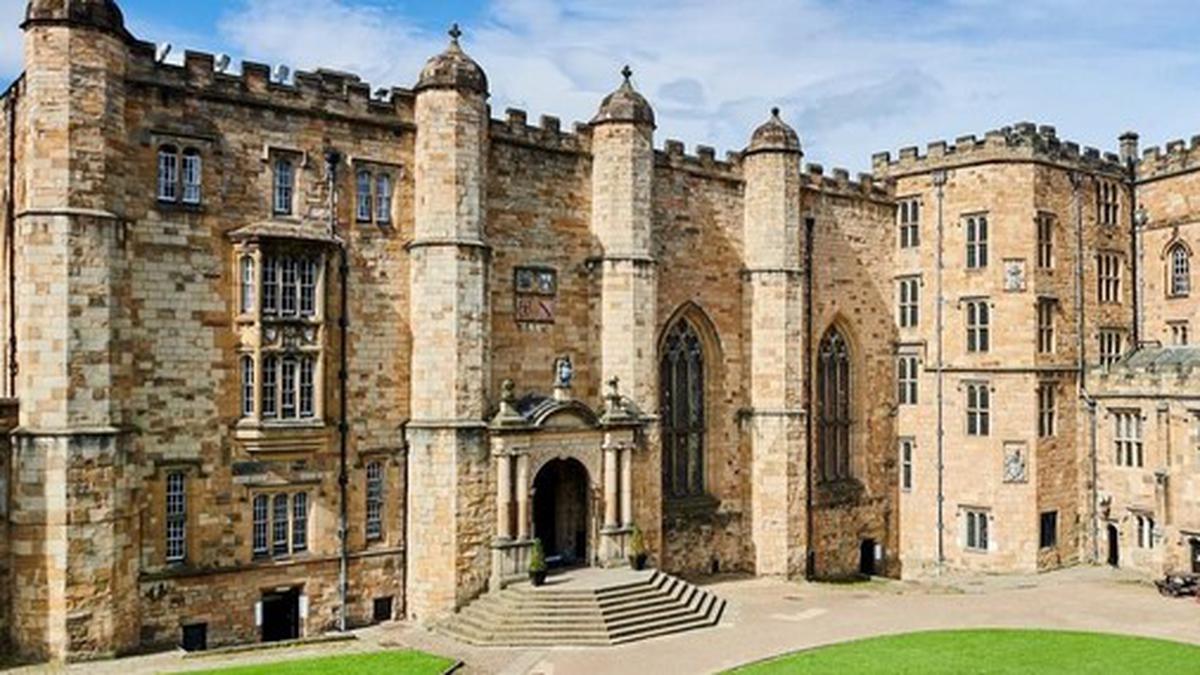
Durham University: A U.K. collegiate system with a difference
The Hindu
Durham University offers international students varied UG and master's progs. 32% of students come from 120 countries outside U.K., incl. India. Colleges provide catered and non-catered accom. and students can take up leadership roles in various societies. U. also helps students find jobs and build entrepreneurial skills. Cost of education and accommodation cheaper than London. 81% of Fateh Education's 2023 students chose to study outside London.
Spread across a hill city, the Durham University — England’s third oldest university established in 1832 after the reputable Oxford and Cambridge — is continuing to attract international students, including from India, for its varied undergraduate and master’s degree programmes.
A university town that boasts of a UNESCO World Heritage Site — a cathedral built between 1093 and 1133 — Durham has an estimated 22,000 students and 17 colleges of residence. This includes Durham Castle, a college in the Norman architecture style, that is out of bounds for outsiders. Of the students, 32% come from 120 countries outside the U.K. “Indian students represent the third highest group of international students. The largest group is from China, followed by the USA,” says Rob Lynes, principal of Stephenson College, and the Associate Pro-Vice Chancellor Global of Durham University.
While the undergraduate programme, as in India, has a three-year duration, the master’s degree can be completed in one year, as is the case with all universities in the U.K. Academics at the university say that a year is adequate to cover the core aspects of the master’s programme. Unlike the theory-heavy academic rigour expected in India, graduate students at Durham usually attend classes for two hours daily on weekdays and spend the rest of their time on research and projects, within their respective college environs.
An interesting aspect is that the collegiate system is different not only from the university-affiliated colleges in India but also from Oxford and Cambridge, which are the only other collegiate universities in England. “In Oxford and Cambridge, the teaching is done through the colleges. Whereas in Durham, teaching happens through the departments,” points out Prof. Lynes.
Then what are the colleges for? Providing catered and non-catered accommodations for students, the colleges are essentially smaller communities within the larger one of the university, somewhat along the lines of the House system in many Indian schools. Each college has around 1,200 students, who live in the college accommodations in the first year with an option to subsequently move out to private accommodations in the city.
“When a student leaves Durham, he or she leaves with a world class degree. We want our students to become global citizens to make a positive contribution to global society. That personal development and growth is really important for us. That sits alongside that academic growth,” adds Prof. Lynes. Incidentally, support for students’ mental health is ubiquitous in the university and college campuses.
Through the numerous societies in its collegiate system, the university offers students opportunities to excel in sports, music, arts, sustainable development, and even a ‘grow society’ to cultivate vegetables. Essentially, students get an opportunity to take up leadership roles in these societies.





















 Run 3 Space | Play Space Running Game
Run 3 Space | Play Space Running Game Traffic Jam 3D | Online Racing Game
Traffic Jam 3D | Online Racing Game Duck Hunt | Play Old Classic Game
Duck Hunt | Play Old Classic Game











